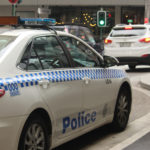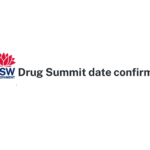Frequently Asked Questions about Traffic Cases

As Sydney’s criminal and traffic law specialists, our lawyers receive queries about traffic matters every day.
Here are the answers to some of the most frequently asked questions:
1. I’ve been give a speeding ticket. Can I take the case to court?
Speeding is the most common traffic offence, and most drivers in NSW will receive a speeding ticket at some point in their lives.
Unfortunately in some cases, a speeding ticket may result in a suspension of licence. Serious speeding offences such as travelling at more than 30km/h or 45km/h over the speed limit result in mandatory suspension periods of 3 and 6 months respectively – and those caught going 45km/h over can have their licences suspended on the spot.
The good news is that you can appeal a speeding offence, but the way that you would go about lodging an appeal depends on the offence you have been charged with.
For accumulation of demerit points
If you’ve simply gone over your demerit points limit as a fully licensed driver, you are unable to lodge an appeal against a licence suspension. You are also unable to appeal a decision to suspend an interlock or a good behaviour licence.
You can, however, appeal against the particular offence which resulted in you losing your licence; for instance, a minor speeding offence or a red light camera. If you choose to appeal your matter to the Local Court, you generally have two options:
- Pleading ‘not guilty’ and taking the case to a defended hearing – in which the police will need to prove beyond reasonable doubt that you were actually speeding. In these cases, the police will normally rely on a reading from a speed camera or their ‘estimation of speed’.
- Pleading ‘guilty’ but asking the magistrate for leniency. This can be achieved by persuading the magistrate to grant a ‘section 10 dismissal or conditional release order’, which means that no conviction is recorded and no points are lost. To do this, you will normally need to prove a very strong need for a licence and explain why the offence was committed.
For a ‘major traffic offence’
If you have been charged with a major traffic offence such as speeding by more than 45km/h or negligent driving, your options are:
- Pleading ‘not guilty’ and taking the case to a defended hearing, or
- Paying the fine and then appealing against the decision to suspend your licence. In that case, the magistrate can reduce the suspension period. It is helpful in these cases to produce material about your strong need for a licence, such as a letter from your employer.
2. What is a Good Behaviour Licence?
A good behaviour licence is a kind of ‘second chance’ for drivers who have had their licences suspended for accumulating demerit points.
Your licence will not be suspended if you choose to apply for a good behaviour licence. Instead, you will be issued with a special licence for 12 months enabling you to continue driving.
But be warned, if you accrue two or more demerit points whilst on a good behaviour licence, you will be suspended for twice the original suspension period – and there is no right to appeal.
You can only apply for a good behaviour licence if the suspension period has not already begun.
Provisional and Learner drivers are not eligible for good behaviour licences.
3. Can I Have a Habitual Traffic Offender Declaration Quashed?
If you have been guilty of three or more major traffic offences within a five year period, you will be automatically be declared a ‘habitual traffic offender’.
This means that the RMS will impose an additional five year disqualification period on top of any court imposed disqualification period.
It is, however, possible to have a habitual traffic offender declaration overturned. Generally, traffic lawyers will advise that you complete the court imposed disqualification period before applying to have a habitual offender declaration quashed, as this will demonstrate good behaviour over the period of the court disqualification.
Alternatively, if you have been convicted of three or more major traffic offences, you can try to prevent the court from declaring you a habitual traffic offender in the first place. This is generally done by showing that an additional disqualification period would be unjust and disproportionate.
The magistrate has discretion to quash the habitual offender disqualification period altogether, or reduce it.
4. I’ve Been Caught Drink Driving – What Are My Options?
If you are charged with drink driving, you will be issued with a court attendance notice which requires you to attend court on a particular day.
In court, you will have the option of either pleading guilty or not guilty.
Pleading Not Guilty
If you choose to plead not guilty, your case will proceed to a defended hearing where the police will have to prove beyond reasonable doubt that you were driving with more than the prescribed concentration of alcohol (PCA) in your system.
In that case, an experienced traffic lawyer can advise you of any defences you can raise to the charge – for instance, if there is any question of an ‘unsafe reading’ – that is, that the amount of alcohol detected at the time of driving may have been lower than when later analysed at the police station or in the ‘booze bus’. This can often be done by obtaining a report to that affect from a pharmacological expert.
Another defence is where conduct a breath test more than two hours after you drove, or where they attempt to breathalyse you on your own property.
Pleading Guilty
Alternatively, you may choose to plead guilty and seek leniency from the magistrate.
For instance, if you have a relatively clean driving record, you may wish to ask the magistrate to issue you with a non conviction order. Alternatively, you may seek to persuade the magistrate to reduce the ‘automatic’ period of disqualification (eg 12 months for a mid range PCA, first offence) to the ‘minimum period’ (e.g. 6 months).
Character references, a letters of apology and undertaking Traffic Offenders’ Program can assist you in obtaining the optimal result in such cases.
It should also be noted that a mandatory interlock order may apply if you are convicted of high range drink driving or repeat drink driving.
5. Can I Appeal a Red Light Camera Fine?
Along with speeding, running a red light is one of the most common traffic offences.
While it is possible to appeal such offences, it can be difficult. Again, your case will go to a court hearing where police will need to establish that you ran the red light. They will normally present photos from the camera to do this, or they may take the witness stand and testify if you were seen by police but not captured by a camera.
A red light camera is normally triggered if the back wheels of your vehicle have crossed the white stop line, and are generally presumed to be accurate.
However, if you are able to establish that the camera in question was not working properly, you may be able to dispute the infringement.
Alternatively you can plead guilty and ask for leniency as discussed above – for instance, by asking for a non conviction order or, if the offence results in a licence suspension, a reduced period of suspension.
Going to court for a traffic offence?
If you are going to court for a traffic offence, call or email Sydney Criminal Lawyers anytime to arrange a free first consultation with an experienced, specialist traffic lawyer who will accurately advise you of your options, the best way forward, and fight for the optimal outcome in your specific situation.






